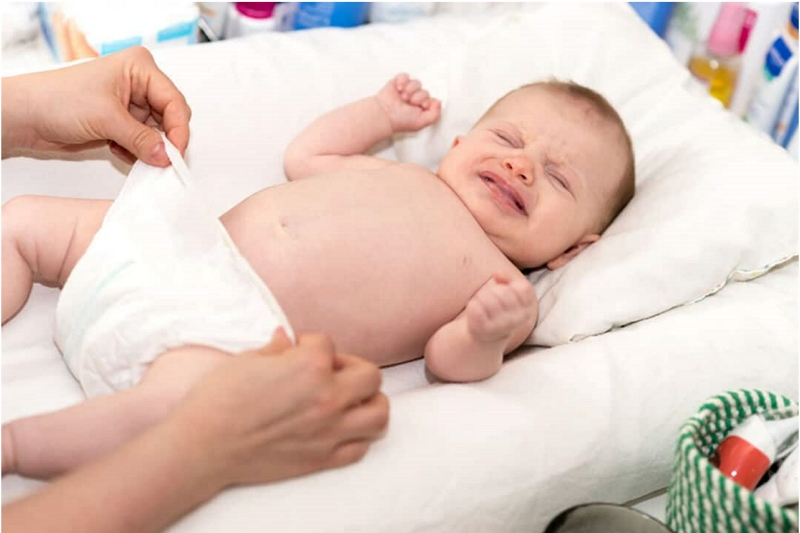How many flip diapers do I need? This is a question that many people have when they are first starting with cloth diapering. The answer, of course, depends on how often you will be washing your diapers.
A general rule of thumb is to have between 12 and 24 diapers. This will give you enough so that you can rotate them while they are being washed. If you plan on doing laundry every other day, then you would need closer to 24 diapers. If you are only going to wash them every three or four days, then 12 should suffice.

Another thing to consider is whether or not you want to use disposable inserts in your cloth diapers. If you do, then you will need fewer diapers since the disposable insert can be used more than once before being washed.
Finally, if you are using pocket diapers, you will need approximately one pocket diaper for every two to three days of use. This is because pocket diapers can hold more than one insert and they do not need to be rotated as often as other types of cloth diapers.
How do you know when to go up a size in diapers?
When your baby is consistently wetting through their current size of diaper, it’s time to go up a size. You should also consider going up a size if your baby is starting to leak out of the diaper or appears uncomfortable.
Diapers are not one-size-fits-all, so you may need to experiment with different sizes and brands to find the best fit for your baby. Talk to your paediatrician if you have any questions about when to go up a size in diapers. They can help you determine what’s best for your little one.
How many diapers does a newborn go through in a month?
A newborn typically goes through about eight to ten diapers a day in the first month. This amounts to around 240-300 diapers in a month.
As the baby gets older, the number of diapers they go through will decrease. By six months old, most babies only need about four diaper changes per day.
So if you’re stocking up for your new arrival, plan on buying between 2400 and 3000 disposable diapers in your child’s first year alone! If you choose to use cloth diapers, that number will be much lower, but you’ll also have to factor in laundry costs.
Did you know that disposable diaper manufacturers must conform to certain government regulations? For example, all disposable diapers must contain leak protection barriers and an absorbent pad. They must also be soft and comfortable against a baby’s skin.
In addition, all disposable diapers must pass rigorous flammability tests. This is because disposable diapers are often stored near other items that can easily ignite, like cleaning supplies or rags.
The average American family will spend between $2000 and $2500 on disposable diapers over their child’s first three years.
That may seem like a lot, but it works out to only about $0.75 per day. And remember, you won’t have to buy any diapers once your child is potty trained! So although the initial cost of disposable diapers may seem high, they ultimately prove to be more economical than cloth diapers in the long run.
How many boxes of diapers will I need?
This is a question that many parents ask as they prepare for their little one’s arrival. The answer to this question depends on the size of your baby and how often you plan to change diapers. A good estimate is about six boxes of diapers for the first month, then four boxes per month after that.
You can always buy more if needed, but it’s best to start with a conservative amount and add more as necessary. Diapers can be expensive, so it’s important to get an accurate estimate of how many you’ll need.
Another thing to keep in mind when purchasing diapers is whether you want disposable or cloth diapers. Disposable diapers are generally easier to use, but some people prefer the environmental aspect of using cloth diapers. There are pros and cons to both options, so it’s important to weigh the options and decide what is best for your family.
When can I start tummy time with my newborn?
You can start tummy time with your newborn as soon as they are awake and alert. Make sure to keep a close eye on them during tummy time, and stop if they become fussy or tired. Start with just a few minutes at a time, and gradually increase the amount of time they spend on their stomach.
Tummy time is an important way for your baby to strengthen their muscles and develop good posture. It also helps promote independence later in life, since babies who can roll over by themselves are more likely to be able to roll out of bed or crawl away from danger on their own. So get those little ones rolling!
Some helpful tips for tummy time:
– Place your baby on a soft blanket on the floor, and make sure they are within your reach.
– Talk to your baby while they’re tummy time, and sing or clap along to some music.
– Place a few toys within reach of your baby, so they can explore while they’re on their stomach.
– Make sure there is nothing in the room that could be a danger to your baby (sharp edges, electrical cords, etc.).
– Take breaks as needed, and always keep an eye on your little one. Tummy time should never be painful or cause discomfort. Babies will let you know when it’s time to stop!
